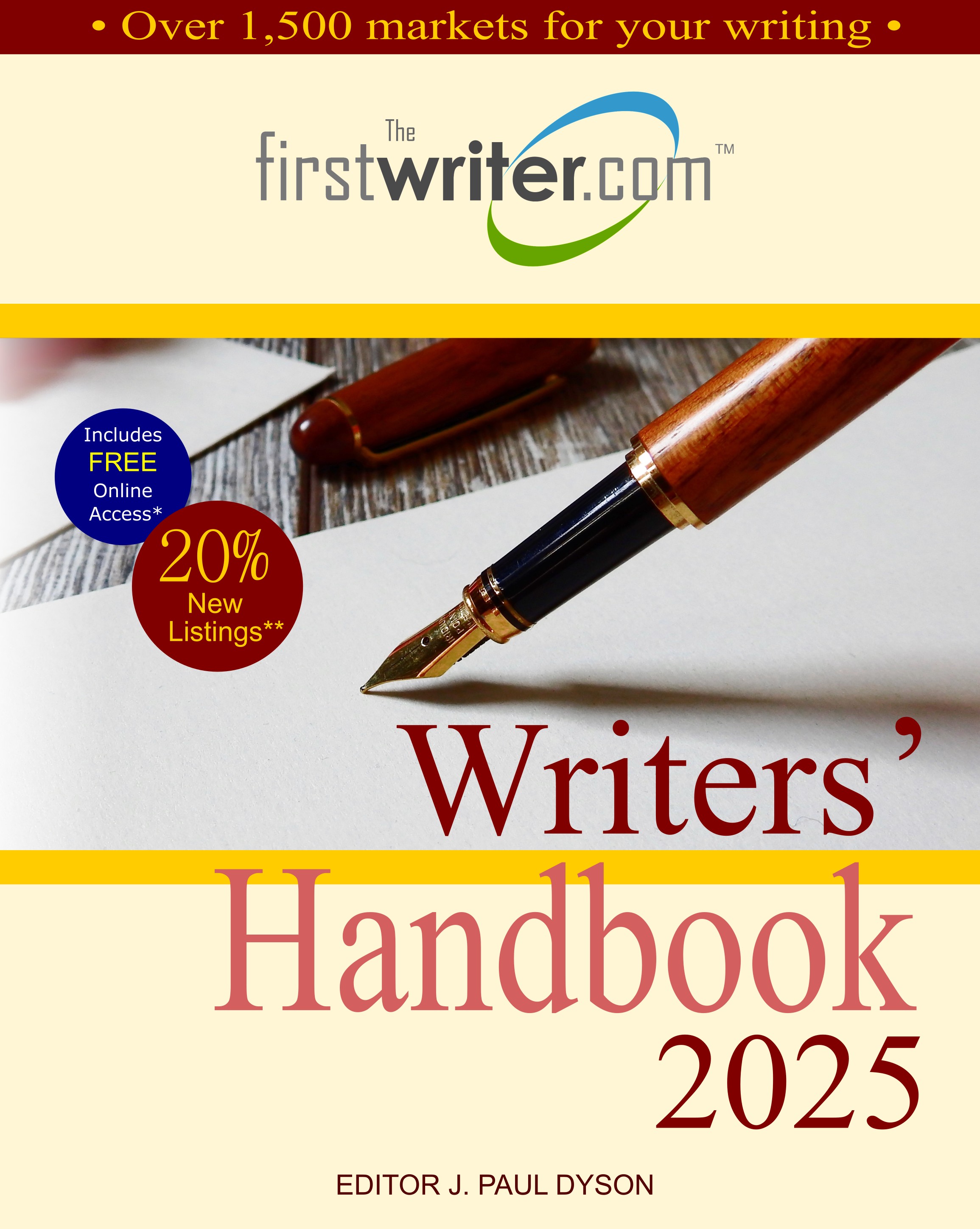
Writers' Newsletter
Issue #255
June 2024
|
Our Interactions in This Business

By G. Miki Hayden
Instructor at Writer's Digest University online and private writing coach
firstwriter.com – Sunday May 19, 2024
At the heart of much of what we accomplish in this life, very much including how well we do as writers, lies how we conduct our relationships, knowingly or unknowingly.
For instance, I’m pretty sure my neighbor is annoyed with me. From time to time I’ll edit a piece of writing for him, as I did recently. I don’t charge him anything, but he will sometime thereafter take me to lunch. Generally, we’re on quite good terms, but what he sent me this last time had a tone that I didn’t think was his, and the way the material was phrased I felt was unwise. Yet the letter—that’s what the note was—made me bristle. The intent was to let a government entity know that the group requesting some action had a distinct amount of power and had better be listened to.
Seriously? Was the group a unified segment of voters? Indeed, does any portion of voters speak as one mind, particularly a faction stated to be one million individuals strong? The sense of this was: If you don’t listen to our demand, we won’t vote for you, and you’ll be sorry.
My neighbor always politely says that if I think of something else to add to his piece, to include any other ideas. I, instead, changed that part of the letter to give thanks for prior deeds that were kind and helpful to members of the group. I thought gratitude for significant aid in the past was perhaps an improvement over a snarkish threat.
But I knew rather well, or assumed, that my friend wouldn’t like the change. And though I have seen him since, we haven’t talked about what I had done, and he hasn’t invited me to lunch as a transactional reciprocation. (I have eaten perfectly well since, anyway.)
But what I’m talking about here is that in the world of writing and publishing, either we can offend others unintentionally or accept that what we may say or do will throw the relationship out of whack.
How we interact with agents, editors, clients, instructors, fellow strivers, and students will certainly affect outcomes involving our desired career.
In another recent instance, a fellow writer sent me a published novel of his that was going to be reissued soon. At the same time, he promised to interview me for his blog since I’m seeking promotion for my latest novel in print (Dry Bones, a police procedural). I told him I liked his novel, and I did, but later he completely blew up when I repeated that I liked the novel, but having in mind that it was going to be reissued, I said he had a certain constant glitch in the punctuation. Oh well, that saved me an hour or two of not writing the answers to his questions for his blog. He then blocked me on Facebook.
I didn’t intend to annoy him; my intention was to help. But maybe he didn’t know that I’ve spent more years than I care to admit trying to make the writing of others more effective.
To continue on the relationship theme: I do have some positive interactions; really I do. I and another author friend I have known for years have developed a cooperation that includes exchanging any market information we come across and giving general support in a very tough business. We have materially helped one another in publishing everything from short stories to novels and have traded advice. If I edit her short story, she welcomes the changes, and she has sent me contact information for places where I might list my work, and vice versa. Even if the suggestions are somewhat flawed (as life might go), no problem. We’re pretty much in synch.
I often become friendly with my editing clients, and, here too, I’ll send suggestions even years later of where they might sell, or give encouragement—or discounts in editing. But I won’t do much for someone who hasn’t gotten back to me to explain not finishing a project. Or, as with someone I responded to on a request that was unclear, later, I found he was looking for suggestions as to markets for his work. Uh, good markets are like gold, not to be set out on the table for anyone who comes along. I like to be helpful, but not willy-nilly. (Let’s not ask for more than we have earned.)
What I really have been thinking of for years in regard to relationships in publishing is the advice given to promote ourselves, and the fact that if a personality is an irritating one, the person would be best hanging back. But can one know that they are being irksome? Probably not.
I hear almost regularly from a member of my membership writing guild. Something is off about the way she presents herself. She’s high maintenance. So what do I do? I try to be nice at the cost of two or so minutes of emailing. Yeah, why not. But I wonder how she comes off to agents she might query. Or on the page.
This is a seriously difficult business. Maybe have your query letters edited. Treat your contacts nicely. Don’t complain. Thank people for pointing out your errors. Don’t expect too much of others, but try to be helpful, especially if you have received good information from them. Find the one or two people who are as polite and cooperative as you are and trade good info with them. Do your best to promote others as you would promote yourself. Build good karma. And if you feel you must be honest with others about their work so they might become better writers, then go ahead.
About the Author
G. Miki Hayden is a short story Edgar winner. She teaches a mystery writing and a thriller writing and other writing classes at Writer's Digest online university. The third edition of her Writing the Mystery is available through Amazon and other good bookshops. She is also the author of The Naked Writer, a comprehensive, easy-to-read style and composition guide for all levels of writers.
Miki's most recent novel out is Respiration, the third book in her Rebirth Series. The New York Times gave her Pacific Empire a rave and listed it on that year's Summer Reading List. Miki is a short story Edgar winner for "The Maids," about the poisoning of French slave holders in Haiti.
"Holder, Oklahoma Senior Police Officer Aaron Clement is out for justice above all, even if he irritates the local hierarchy. Hayden in Dry Bones gives us nothing-barred investigation and plenty of nitty-gritty police procedure—which makes for a real page turner." — Marianna Ramondetta, author of The Barber from Palermo
|
|
|
|
|
|
|
|
International Copyright RegistrationRegister your copyright online for instant copyright protection in more than 160 different countries worldwide. |
News |
Some of this month's news for writers from around the web.
Lucy Holland to lead Curtis Brown Creative's new Writing Fantasy course
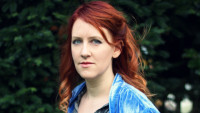
thebookseller.com – Friday June 14, 2024
Curtis Brown Creative (CBC) has launched its new Writing Fantasy course, taught by author Lucy Holland. It is the latest in CBC’s growing range of online courses, and follows the increased interest in fantasy novels.
Applications are now open for the nine-week course, which will run from 8th October to 3rd December. The programme will give 15 students the opportunity to take online teaching classes, workshops and one-to-one tutorials, as well as a Zoom masterclass with Fathomfolk author Eliza Chan (Orbit), and her C&W literary agent Alexander Cochran.
"We’ll be looking at worldbuilding on a character level, as well as ways in which fantasy can challenge us to write outside our direct experience," Holland said. "I’m also excited to cover popular subgenres like myth retellings and romantasy, and how to harness tropes to tell a compelling story."
Writers' Handbook 2025 - Out Now!
|
Ursula K. Le Guin's home will become a writers residency
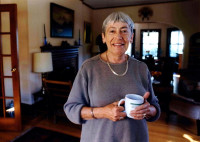
independent.co.uk – Monday June 10, 2024
Theo Downes-Le Guin, son of the late author Ursula K. Le Guin, remembers well the second-floor room where his mother worked on some of her most famous novels.
Or at least how it seemed from the outside.
“She was very present and accessible as a parent,” he says. "She was very intent on not burdening her children with her career. ... But the times when she was in there to do her writing, we knew that we needed to let her have her privacy.”
Downes-Le Guin, who also serves as his mother's literary executor, now hopes to give contemporary authors access to her old writing space. Literary Arts, a community nonprofit based in Portland, Oregon, announced Monday that Le Guin's family had donated their three-story house for what will become the Ursula K. Le Guin Writers Residency.
Le Guin, who died in 2018 at age 88, was a Berkeley, California, native who in her early 30s moved to Portland with her husband, Charles. Le Guin wrote such classics as “The Left Hand of Darkness” and “The Dispossessed” in her home, mostly in a corner space that evolved from a nursery for her three children to a writing studio.
Writers’ Guild of Great Britain demands fair pay for writers ahead of general election

thebookseller.com – Thursday June 6, 2024
The Writers’ Guild of Great Britain (WGGB) has called on the next government to “enshrine protections for writers” in its manifesto recommendations ahead of the forthcoming general election.
The trade union representing writers wants the next government to implement its recommendations around fair pay, fair treatment, sustainability, and copyright and AI.
Ellie Peers, general secretary of WGGB, said: “Writing is a highly skilled job and everything starts with the writer – without them there would be no feature films, TV or audio dramas, no plays, no books, poems or videogames.
“They provide the fuel that fires our creative industries, which in turn makes a major contribution to the UK economy.”
| Click here for the rest of this month's news > |
Listings |
A selection of the new listings added to firstwriter.com this month.
New Literary Agent Listing: Hillary Fazzari

firstwriter.com – Monday June 10, 2024
A highly editorial agent, she is looking for high concept, high stakes stories with deep character development and gorgeous, commercial prose. Overall, she acquires primarily Middle Grade and YA, and is open to any genre in those areas, including graphic novels (but only with illustrators attached). In New Adult and Adult, she acquires more selectively and is open to unsolicited queries in: Rom-coms and rom-com adjacent material (including relevant genre mashups); Romantasy and other SFF/romance mashups (including romantic dystopian); and very select narrative nonfiction that focuses on history.
|
|
|
|
|
|
|
|
New Literary Agent Listing: Rosie Pierce
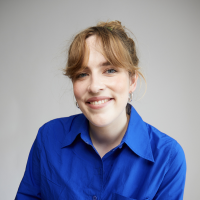
firstwriter.com – Tuesday June 4, 2024
I read widely and across genres, and I am looking for both literary and commercial fiction. I love family dramas, ghost and horror stories, psychological suspense, murder mysteries, gripping thrillers, and big-hearted romantic comedies. In storytelling I am most often drawn to distinctive, original voices; vivid characterisation and world building; confident, engaging prose; and astute social observation. I particularly love to read about the relationships that shape - or even define - a life. I am looking for expansive, character-driven novels that explore complicated family dynamics, enduring friendships, love affairs, coming of age, the best and worst things we do for love. I am also always keen to read novels that explore occultism, séances, the uncanny, dark academia, and thrillers with emotional punch and nail-biting plot. And if a novel can make me laugh, I am sold. In non-fiction, I'd love to hear from writers who bring their expertise and/or experiences to the page in an accessible, compelling and original way. I am looking for narrative non-fiction, memoir, and books exploring pop and celebrity culture, alternative histories, psychology, the internet.
|
|
|
|
|
|
|
|
New Literary Agent Listing: Jess Molloy
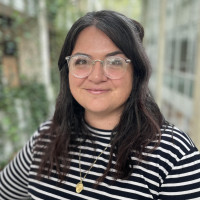
firstwriter.com – Monday May 20, 2024
I read broadly across fiction and narrative non-fiction. I am usually first pulled in by a unique concept or setting, but what keeps me reading are beautifully drawn, complex characters, relationships, and family dynamics. I enjoy reading fantasy and romance and I am particularly on the lookout for a story which has a slow burn at its heart, full of angst and drama. I have a deep love for Irish fiction both in terms of Irish writers, and novels set in Ireland. I enjoy crime fiction and true crime writing that subverts the genre and focuses on the victim or the fallout for their family. In terms of non-fiction, I enjoy issues led narrative writing with a personal story at its heart and particularly love hearing from underrepresented voices. I am also interested in psychology and therapy. My non-fiction reading varies broadly from comedians to experts and journalists, but what I am always looking for is an authentic voice that will teach me something fascinating or share a very personal journey with me.
|
|
|
|
|
|
|
|
| Click here for more of this month's new listings > |
Articles |
Some of this month's articles for writers from around the web.
Books are my business: Founder of Fish Publishing Clem Cairns
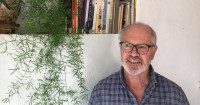
irishexaminer.com – Sunday June 9, 2024
Clem Cairns is the founder of Fish Publishing, which he started with Jula Walton in 1994 with the aim of promoting the work of new writers.
It is based in Durrus, Co Cork, and every year publishes the Fish Anthology, featuring the winners of the Fish short story, short memoir, flash fiction and poetry prizes.
How did you get into publishing?
It is 30 years now since we founded Fish Publishing. I was trying to be a writer and there weren’t that many outlets in Ireland at that time for new writers, particularly for short fiction. Myself and my partner Jula Walton decided we would publish short Irish fiction, and we would do it by running a competition.
That was the initial idea. We called it Fish Publishing because I was working on a fishing trawler out of Schull at the time to earn the money to publish my first book of short stories. It was a good metaphor — casting out a net and hauling in the stories. We wanted to promote and encourage a new generation of Irish writers. After a few years, the internet happened and it went worldwide.
Inside Danielle Steel’s Writing Process: Needing ‘Everything Perfect to Start’ And Why She Still Gets Scared

people.com – Sunday June 9, 2024
Danielle Steel has written 212 books — so far — but the bestselling author still feels the pang of nerves before starting a new draft and the thrill of seeing the finished product on shelves when each publication day rolls around.
"It doesn't get old," she told PEOPLE, for a story in this week's print issue. "I'm always grateful. But also, I'm always scared in the beginning. I never think, 'Oh, I can do this. No big deal.' I'm always scared I won't get it right, or it won't be as good as it should be."
The author says it usually takes about 200 pages before she can really relax, and she strives to make her books "better every time."
Her writing process begins with an outlines she does by hand, accompanied by exhaustive research, much of which she does herself because that attention to detail is what makes her books credible, and keeps her readers coming back.
The surprising joys of independent publishing

thebookseller.com – Monday June 3, 2024
Publishing non-fiction is a tricky beast. I should know, I’ve written five non-fiction books to date with different publishers across the board: Ebury, Transworld, Hodder & Stoughton and each experience has been very different. While I’ve had great experiences (a Sunday Times Business Bestseller, Apple’s "best book of the month", UK book tours, guest curating at Cheltenham Literary Festival, multiple appearances at Hay Festival and other “badges of honour”) I’ve been left wondering if there might a different way to get my zeitgeist non-fiction writing out there. Non-fiction is famously hard to sell (requiring authors to have "a platform") and the books often include timely topics that rely on tapping into a cultural moment. I’ve been thinking: in a world of newsletters and zines — is publishing a traditional big hardback non-fiction book always the best way to spread your idea? I am not so sure anymore.
My Substack newsletter, The Hyphen, has really taken off over the last couple of years and has attracted over 50,000 engaged readers, meaning that I can publish my articles and essays with a click of a button, directly reaching my readers. There is a paid subscription model for any supporters of my work who want to access my hub of over 100+ articles. Even though it’s more about building the community than "scaling" financially or otherwise, I recently made the equivalent of a previous non-fiction book advance in a single month on Substack.
| Click here for the rest of this month's articles > |
About |
Information about this newsletter and the firstwriter.com site.
Resources for writers
Go to firstwriter.com for the following invaluable resources for writers:
Advertise
To advertise on this newsletter for as little as $30 / £20 click here
Submit
To submit articles, news items, press releases, or any other items of interest to writers, click here
This newsletter has been compiled by firstwriter.com and is protected by copyright. It may not be copied, forwarded, or otherwise distributed in whole or in part without firstwriter.com's written consent.
While every effort is made to ensure that all information contained within this newsletter is accurate, readers are reminded that this information is provided only as a list of potential leads that the reader should follow up with his or her own investigations. Unless otherwise stated, firstwriter.com is not associated with and does not endorse, recommend, or provide any assurances relating to any of the organisations, events, persons or promotions contained within this newsletter, and cannot be held responsible for any loss incurred due to actions taken in relation to information provided. Inclusion does not constitute recommendation.
Please do not reply to this email. The address from which this has been sent is not capable of receiving emails and sending an email to it may cause your subscription to stop. If you have any queries or require any assistance please contact us by going to https://www.firstwriter.com/contactus/
© firstwriter.com 2024
